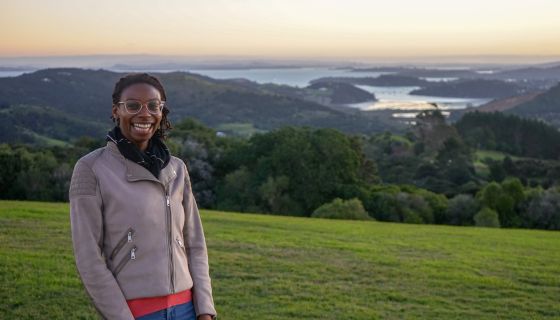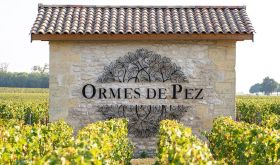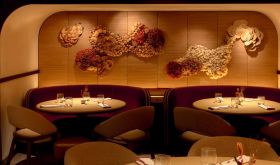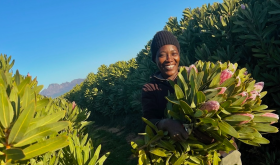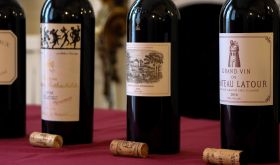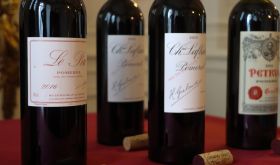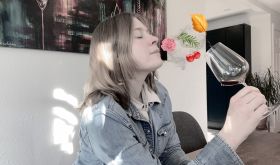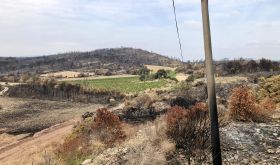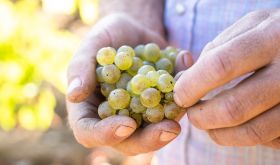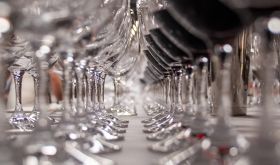As a Black woman in the wine industry, there’s an unspoken expectation to share the struggles I’ve faced – often at the expense of the joys. I’m not going to detail how I’ve been interrogated about my wine knowledge. I’m not going to describe how I’ve been dismissed at tastings and taken seriously only after reps realised I was buying for James Beard Award-winning or Michelin-starred restaurants. Suffice to say I’ve faced discrimination and micro-aggressions that have almost made me leave the industry. The key word is almost.
Despite these challenges, my passion for wine hasn’t wavered. It has only increased. 8,192 miles – that’s how far I travelled to further my wine education. I was already a celebrated sommelier and dedicated wine student when I boarded that plane. I’d attended the Court of Master Sommeliers Advanced Sommelier course and was fully intent on completing their Advanced Sommelier exam. However, I realised my curiosity ran far deeper than that. So I moved to Aotearoa New Zealand to pursue my Masters in Wine Science instead.
There, I set about solving the riddle that had vexed me for years: what exactly is terroir? For my thesis, I examined the microbial contribution to regional character in New Zealand Pinot Noir. I quantified a major piece in the terroir puzzle and identified aroma compounds that distinguish New Zealand Pinot Noir from its peers.* This academic accomplishment demonstrates my ability to pass difficult coursework with distinction.
However, there is more to wine than certifications. To get a complete picture, you also have to roll up your sleeves. As an assistant winemaker, I’ve gained an intimate understanding of wine production. Did you know that grapevines can speak to you? It’s a language that transcends words, like the silence among friends. They tell you how they’re doing with their trunk and canes, and it’s your job to listen and give them what they need. In that way, viticulture is like a long, storied conversation.
Winemaking is much the same. During fermentation, you must listen to the yeast. When they fall silent, you must pay even closer attention. Chemical compounds shift and recombine. Bacteria change malic to lactic acid. Oak barrels breathe in and out. As a winemaker, you have to communicate with each individual vine and vessel. It takes patience, and it’s hard work. But I love it.
Thus far, I have almost a decade of experience, a certification, a Master’s degree, two publications and several accolades.** However, what I’ve ascertained is but a fraction of what there is to discover. In Aotearoa New Zealand, I worked with a Master of Wine and befriended an aspiring MW. Their snout-to-tail wine acuity inspired me to take a closer look at the MW programme. The more I learned, the more I wanted to apply. However, I knew I couldn’t afford it. Becoming an MW was something I viewed as a lifelong pursuit requiring years of savings, until I was told of the Taylor’s Port Golden Vines Scholarship by Sam Harrop MW.
Becoming an MW will build upon my existing knowledge base and expose me to new and exciting wine regions and styles. I have visited wine regions in Spain, Canada, the USA and Aotearoa New Zealand. However, I long to see the vines of South America and Europe in person. This opportunity and internship would allow me to do so. It will also allow me to positively contribute to the global wine world. I dream of developing a wine-focused study-abroad programme for BIPOC/BAME individuals. I want to continue writing and pen articles beyond my experiences as a Black woman in the industry. I aspire to tackle meatier fare and dig into challenging topics such as the impact of colonialism on New World wine regions, or how the Homestead Act haunts the US wine industry to this day.
Nothing is stopping me from doing so. However, as an MW there is a greater chance people will listen and engage with me. These positive contributions include being open and accessible. Some Master Sommeliers and Masters of Wine choose to hoard their knowledge and power, but I’ve never lost sight of my community responsibilities. If accepted, I plan to share my knowledge widely and often. On Instagram, as @vinenoir and @responsiblehedonistwines, I’m detailing my experience preparing for WSET Level 3 and the business journey as I develop my wine brand, Responsible Hedonist. Offline, I currently mentor women and BIPOC individuals. As an MW, I could expand my reach via access to new networks and resources.
When I first started in this industry, there weren’t many people who looked like me. But that never deterred in my pursuit of knowledge and joy. Recently, I’ve been pleased to see more BIPOC coming up through the ranks. However, without seeing BIPOC in the upper echelons, it’s easy for some to question their path. As one of the first Black, female Masters of Wine, I will confidently tell them: ‘Keep going. This is an industry for us. Follow me.’
*My Pinot Noir research has been shared with the wine community in Aotearoa New Zealand and I’m currently in the process of publishing my results.
**I’ve been featured in SevenFifty Daily, Plate Magazine, Chicagoist, The Chicago Tribune, among others, and written articles for VinePair. I am also a Roots Fund and Women of the Vine and Spirits Trust Scholar. For more, please visit my website inktr.ee/vinenoir.

